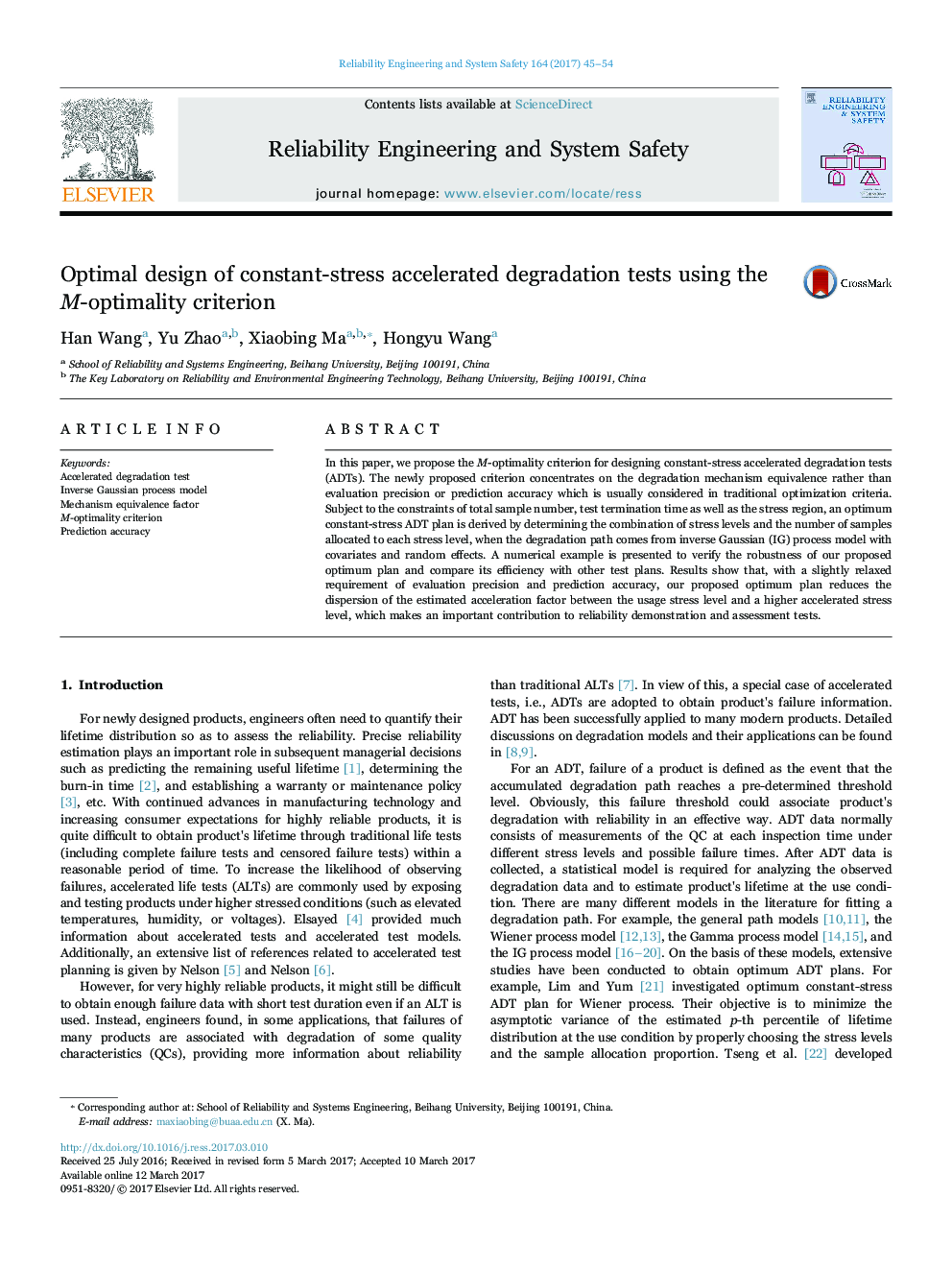| Article ID | Journal | Published Year | Pages | File Type |
|---|---|---|---|---|
| 5019446 | Reliability Engineering & System Safety | 2017 | 10 Pages |
Abstract
In this paper, we propose the M-optimality criterion for designing constant-stress accelerated degradation tests (ADTs). The newly proposed criterion concentrates on the degradation mechanism equivalence rather than evaluation precision or prediction accuracy which is usually considered in traditional optimization criteria. Subject to the constraints of total sample number, test termination time as well as the stress region, an optimum constant-stress ADT plan is derived by determining the combination of stress levels and the number of samples allocated to each stress level, when the degradation path comes from inverse Gaussian (IG) process model with covariates and random effects. A numerical example is presented to verify the robustness of our proposed optimum plan and compare its efficiency with other test plans. Results show that, with a slightly relaxed requirement of evaluation precision and prediction accuracy, our proposed optimum plan reduces the dispersion of the estimated acceleration factor between the usage stress level and a higher accelerated stress level, which makes an important contribution to reliability demonstration and assessment tests.
Related Topics
Physical Sciences and Engineering
Engineering
Mechanical Engineering
Authors
Han Wang, Yu Zhao, Xiaobing Ma, Hongyu Wang,
